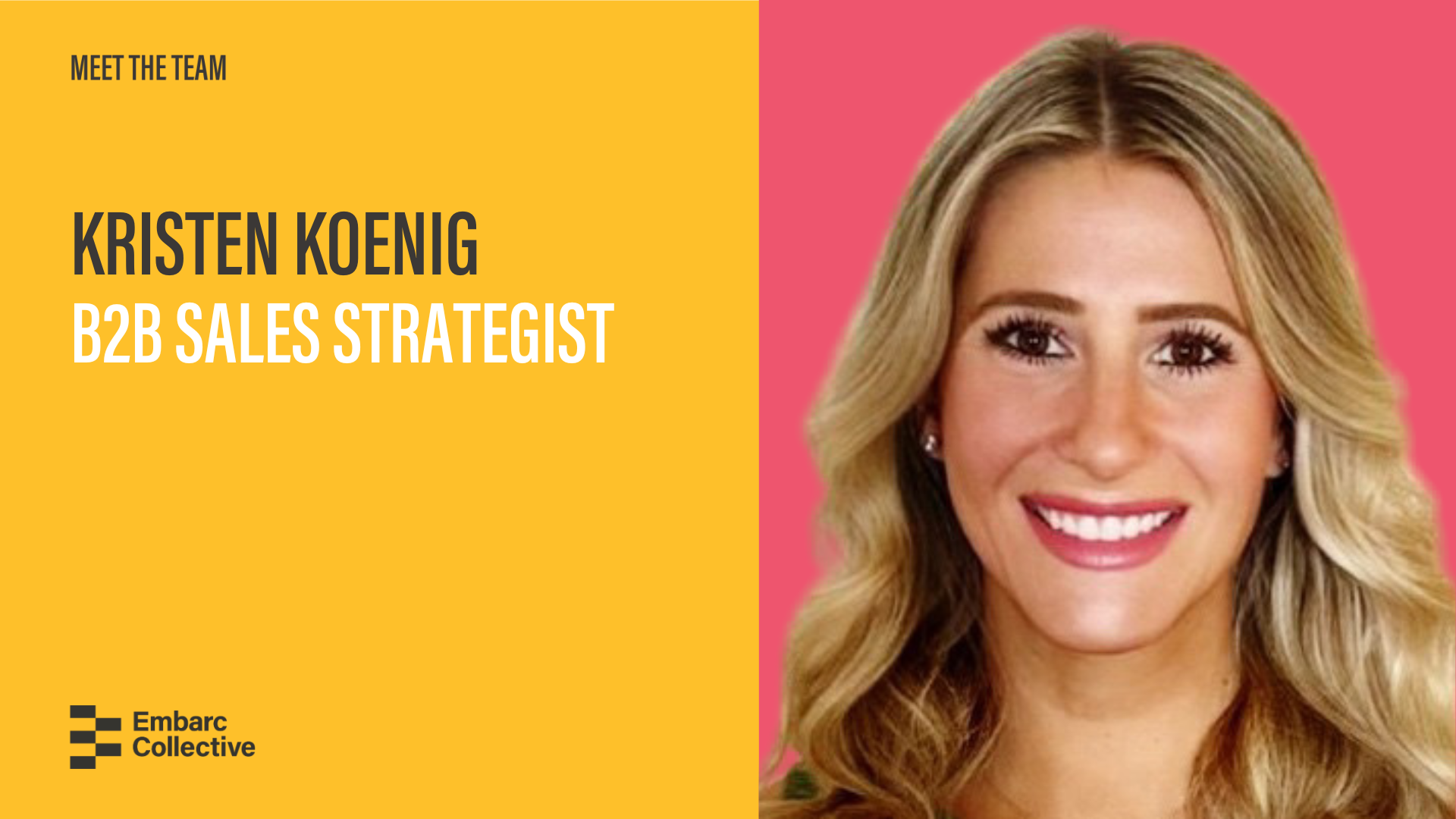We invited Chad Nuss, Founder and CRO of InsideOut, to speak with companies supported by Embarc Collective on how to create effective sales plays. InsideOut, based in St. Petersburg, has helped hundreds of leading brands like Google, Facebook, IBM and Microsoft optimize their sales cycles through innovative techniques, playbooks, and technologies.
Why is having a sales play so important?
As Chad described it, programmers wouldn’t be able to code programs if there wasn’t a common language or framework to be referenced. This same approach should be taken when thinking about building sales plays. A common language or structure to your sales strategy, known as plays, is necessary when communicating and driving your team to successfully close sales.
At InsideOut, Chad and his team have focused on the basics of a sales play to help founders and their teams develop solid sales strategies.
The Sales Play Basics
Below are six examples of InsideOut’s Sales Play attributes. InsideOut stores hundreds of customizable attributes to help you design a personalized buyer experience These attributes allow a seller to pursue a buyer in a personalized way, improving conversation rates, pipeline velocity and revenue.
- Industry
- ICP Markets
- Persona
- Offer
- Sales Motion
- Cadence
Industry: What industries are you targeting?
This should be the easiest for your team to identify and a great place to start your sales planning. These are the industries your startup product is targeting. If you are focused on one core industry, try and think of the sub-segments within that industry to further customize your messaging to each buyer type.
ICP Markets: What is your ideal customer profile (ICP)?
Your ICP is a description of the company — not the individual buyer or end-users — that’s a perfect fit for your solution. The ICP should focus on relevant characteristics such as vertical, employee headcount, annual revenue, budget, geography or technology they use. For example, your industry may be healthcare but your ideal customer profile would be small, mid-size, etc. businesses that focus on billing in the healthcare space.
Persona: Who are your target personas?
Your personas are the types of buyers within your industry that you would like to target. If you offer a cybersecurity product, your industries may be government agencies as well as corporations. However, in each of these industries, the buyers may look different. For a government agency, a director may be your buyer. For a corporation, a CIO or CISO (Chief Information Security Officer) may be your buyer.
Offer: What offers do you have?
These are resources (white paper, ebook, template or guide) you can provide to the customer to help them solve their problem. These resources are the incentive that draws a customer in to engage with your sales play. The goal is to provide your customer with something that will help them solve their problem or perhaps, get closer to the solution with knowledge of your product and solutions.
Sales Motion: What’s your sales motion?
Here you should determine the goal of the sales play. Are you hoping to gain new customers, win back old customers, renew service with existing or soon-to-be canceled customers? Having a solid call to action or outcome from your sales plays will allow you to streamline your efforts as well as provide a benchmark to evaluate and measure your sales play progress.
Cadence: What kind of cadence are you delivering this play?
It’s important to define how long a sales play should last. Depending on the outcome you’d like from the sale, the cadence method may change. For example, if you have a sales play with a webinar that is time sensitive or pertaining to a seasonal issue, you may choose to run this sales play with a shorter cadence and push out via external newsletters. Or you may find that some campaigns may need to happen in bursts, distributed exclusively on social media. Cadences require you to determine the number of days, number of steps, the interval periods between steps, and the media types you want to pursue your prospects with (email, phone, LinkedIn, video, direct mail, etc.)
In Application
Use this framework to organize your sales play planning. Each sales play will require testing and application to determine what works best for your product. A successful sales play helps you drive increased conversations with your buyers by an average of 25%.
You should keep tabs on your sales play metrics, such as how many signups your webinar had and how many customers engaged with the call to action on your latest landing page. Compare these metrics to the objective of the sales play. Were you able to convert x amount of customers with this sales play method? You may find that some sales plays may lead to different outcomes than predicted which may provide an opportunity to revisit your goals and customer need. Evaluating metrics like these, and recording the results regularly, will help you determine which sales plays are effective and which aren’t as well as which customers or buyers they are best suited for.
Find more on sales play strategies here.
InsideOut has hired 50 new employees in March, and seeking to hire another round of 50 new employees in May to support new customers including IBM, Google and T-Mobile. Learn more about InsideOut’s Sales Play™ methodology, or if you are interested in joining the fastest growing company in the Tampa Bay area, you can visit their Careers Page for more information.
Keep up with the latest in Tampa Bay startup news, local talent interviews and founder resources.
Delivered to your inbox every Thursday.



